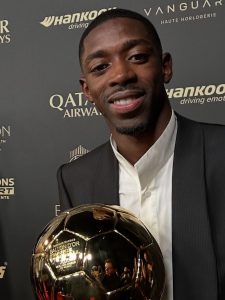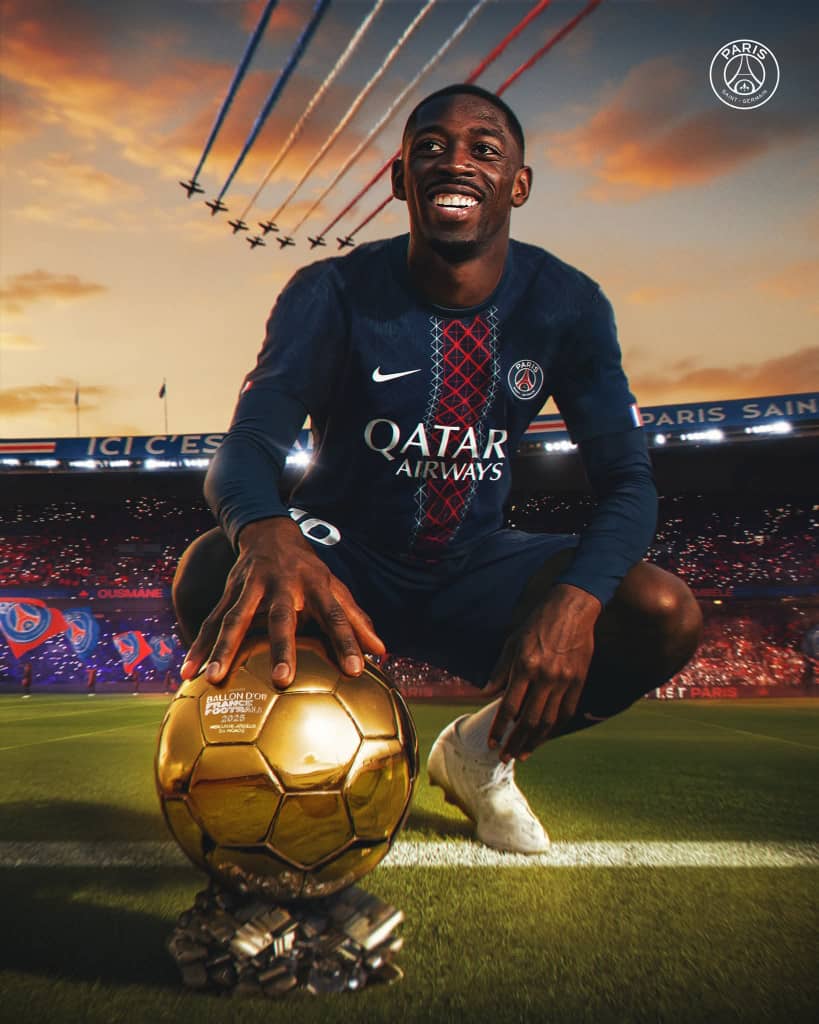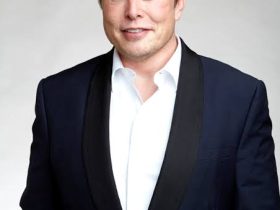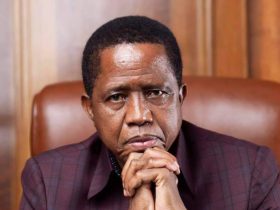The Théâtre du Châtelet glowed golden on the night Paris waited for. The 69th Ballon d’Or ceremony was always meant to crown a story, but few expected the headline to be written in the name of a man once weighed down by whispers of fragility and wasted potential. When Ousmane Dembélé’s name was called, the entire hall seemed to exhale at once. Years of injuries, frustration, and doubt fell away, replaced by the image of a 28-year-old at the peak of his powers, holding the game’s most coveted individual prize.

Dembélé’s journey to this moment has been a study in redemption. Once a prodigy whose talent seemed trapped behind the glass of inconsistency, he arrived at PSG with little more than hope and reputation. But under Luis Enrique, something changed. The winger began to play like a man free of shadows — twisting defenders, stitching goals from nothing, creating sparks that lit up Europe. PSG did not just dominate France; they conquered the continent, finally lifting their first Champions League. Dembélé’s fingerprints were all over the triumph, a season rich with goals, assists, and moments that turned belief into silverware. “The Ballon d’Or is the Holy Grail,” he had told Le Monde weeks before, as if preparing himself for destiny. Tonight, destiny answered back.
His victory speech was drenched in gratitude. He thanked his family for never giving up, his teammates for trust, his coaches for patience, and above all, the supporters who had chanted “Ousmane, Ballon d’Or” long before it was official. Around him, stars young and old rose to their feet, some applauding with respect, others with awe at a career reborn. PSG president Nasser al-Khelaïfi’s earlier words now felt prophetic: If Dembélé does not win the Ballon d’Or, there is a serious problem. There was no problem. Only light.
But the night was not his alone. It was Aitana Bonmatí’s too, as she claimed her third consecutive Ballon d’Or Féminin, cementing her legacy as the heartbeat of Barcelona and Spain. It was Lamine Yamal’s, who, at just 18, added the Kopa Trophy to his name, the world watching as a new genius bloomed. The Yashin Trophy shone in two hands this year: Gianluigi Donnarumma for the men, a reminder of his towering consistency, and Hannah Hampton for the women, the award marking new ground as inclusivity widened football’s lens.
The Gerd Müller Trophy, awarded to the deadliest scorers, went to Viktor Gyökeres and Ewa Pajor, their boots writing the poetry of goals. Coaches, too, had their moment in Luis Enrique and Sarina Wiegman, architects of belief and strategy, whose fingerprints were on every triumph their teams celebrated. Clubs of the Year were named: PSG, inevitably, on the men’s side, and Arsenal for women, their collective achievements standing tall beside individual brilliance. The Socrates Award, given to recognize humanitarian effort, was awarded to the Xana Foundation, proof that football’s reach goes far beyond the stadium.
Still, it was Dembélé’s night most of all. His numbers dazzled — over 35 goals and 16 assists in all competitions — but it was the manner in which he played that lingered: fearless dribbles, decisive strikes, the kind of flair that made fans believe again. Once described as a player of “what ifs,” he is now the face of “what is.” At 28, his win stands alongside football’s late bloomers, recalling stories like Didier Drogba’s rise and Roberto Baggio’s peaks, players who showed that brilliance can ripen over time rather than explode overnight.
As the night closed, the golden trophy in his hands, Dembélé seemed less like a man who had reached the summit and more like one who had finally found his stride. Around him, the constellation of winners painted football’s future: Bonmatí’s dominance, Yamal’s youth, Gyökeres’ goals, Hampton’s saves, Wiegman’s leadership. Yet the headline was singular and shining: Ousmane Dembélé, Ballon d’Or winner, the boy who was once doubted, the man who now stands golden.











Leave a Reply